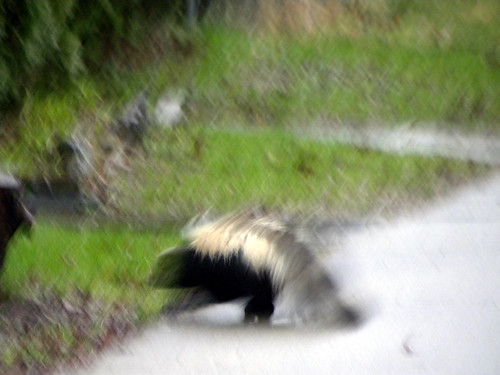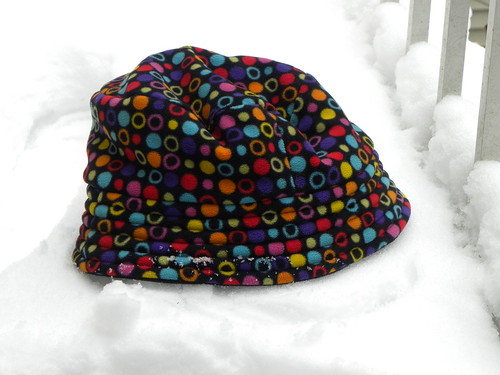I have to admit, I am rather kicking myself. I decided a few months ago that this was a valid lecture topic for my Novel III class, which starts in the not too distant future. But who am I to lay down Pronouncements on Literachurrr? Where does one even begin?
Well, it’s easy to say what makes a book bad, and it’s also pretty easy, in my opinion, to say what doesn’t make a book bad, and so I think I’ll start there.
First, I’ll dispense with the most obvious thing, the thing (I would hope) that goes without saying, but I consider a book superbad if it is hate literature. If its point, in overt whole or in sneaky part, is to portray some given slice of humanity as somehow less able, less noble, or less capable of goodness than another, it is propaganda, and evil, and I want no part of it.
Moving on, I consider a book to be not quite good if its line by line writing is clumsy, even if the story is compelling enough that I read it through with some enjoyment.
I also consider a book not quite good if its story or protagonist bore me, even if the prose is beautiful.
The above two points are important because as one develops as a writer, it becomes incredibly useful to know how to separate enjoyment from quality. We all have moments when we enjoy something that we know, objectively, isn’t all that great. And I will tell you something else… there is not one thing wrong with that. In fact, I’ve recently posted a review of a well-known Stieg Larsson book here, and in it I write about how I liked it an awful lot, even though it’s seriously lacking in the prose department.
This next bit is one of those things that should go without saying, but so many people demonstrate that in fact it does need saying: I do not consider a book bad if I have not bleeping read it. This is true even if if it is something I’m pretty sure I won’t like. Along the same lines a book isn’t automatically bad because it’s a literary novel, or porn, or mystery, or a teen gothic romance with sparkling vampires, or sword and sorcery with frighteningly cheesy cover art, or fanfiction, or entirely written in haiku. As a matter of principle, I believe there is every genre of fiction offers the potential for artistic excellence.
The above covers the bad and the ugly pretty decently, I think, but I’m back to the original question: what makes a book good? I like to think my judgment is pretty decent. Even so, as I’ve already said, the thought of setting myself up as a big ol’ authority makes me uneasy. Hey, everyone is wrong now and then, right?
Never mind that: here I am, out on the limb. How’s this for a proposition? A book is good if it is nicely written, tells a good story, makes you think, and if it makes you feel something, whether that something is recognition, surprise, grief, or hilarity.
Finally, it’s good if it is memorable. My annual books read lists are full of novels I cannot recall at all. Pixies might as well have erased them from my brain. I can go back to reviews of some of them, and with that kind of a prod in hand I can sometimes remember: Oh, yeah, I quite enjoyed that at the time. If it passed without a trace, I say no: it may have been fun, but it wasn’t good.
Critical judgment, the ability to separate our notions of what we like from the issue of what is good, is a tricky and subjective thing. It is the difference between a gut reaction and an informed opinion. Party of the sticky terrain here is that the issue of quality comes loaded with all kinds of emotional baggage. How many times have you mentioned disliking something–a movie, an actor, whatever–only to find the person you’re speaking to reacting defensively, or as if they’re hurt?
We are raised, generally, to think ill of snobbery, and we take it personally when people we respect don’t like our favorite things. And if you’re the person who didn’t like your BFF’s favorite novel ever, you sometimes want to apologize for having been judgmental in the first place. After all, telling someone their beloved thing isn’t good may diminish the pleasure they take in it, right?
Then again, it might make them think–you can’t know.
But I’m not suggesting you start mowing through your friends and family members’ various sacred cows, pickin’ fights and revealing their flaws to the harsh inner light of your critical judgment. I am saying that the more you can learn to discern whether a book is well-crafted, the more critical tools you’ll have to apply to your own fiction, and to the work of any writer you’re trying to critique.
So… this judgment thing. Where does it come from?
Alan Bennett says it far better than I could in his excellent novella The Uncommon Reader .
.
…saw in the corner of the bookshelf the book by Ivy Compton-Burnett which she had borrowed from the travelling library and which Mr. Hutchings had given her all that time ago. It had been hard going and had nearly sent her to sleep then, she remembered, so perhaps it would do the trick again.
Far from it, and the novel she had once found slow now seemed refreshingly brisk, dry still but astringently so, with Dame Ivy’s no-nonsense tone reassuringly close to her own. And it occured to her (as next day she wrote down) that reading was, among other things, a muscle and one that she had seemingly developed. She could read the novel with ease and great pleasure, laughing at remarks (they were hardly jokes) that she had not even noticed before.
In other words, developing your judgment is a matter of practice… and of practicing something that, in theory, you ought to already enjoy. It’s the same process one goes through if you’re trying to learn to appreciate chocolate, wine, cheese or anything else: you taste a lot of things, you pay attention, and you think about the experience. You discuss it with other people in the know; you see what other people are saying. You taste some more. Lather, rinse, repeat.
There are aspiring writers who don’t read, and I cannot help but find that a shame. Love of books and reading, of stories, is–I hope–the thing that draws people to writing. And once you’re drawn, I hope you want to write good books. Not books of a certain genre, necessarily, not books that Tell Important Stories!, not works of propaganda, but well-told interesting stories that reflect, to readers, what it is to be human.
, which Kelly and I have been rewatching this past week as part of our ongoing drive to watch all Teh British Costume Drama in the history of History.










